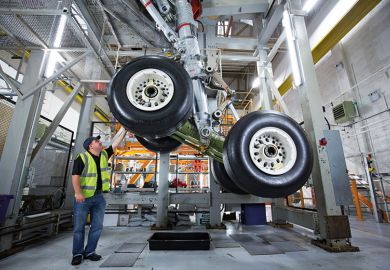There are "just weeks" to secure the future of a world-leading research facility on UK soil in the wake of the government's decision to leave the European Atomic Energy Community as part of Brexit.
The future of the JET experimental reactor has been in question since it was announced last month that the UK would be leaving Euratom, which funds and coordinates nuclear research, including the Oxfordshire facility.
Steve Cowley, president of Corpus Christi College, Oxford, said that the JET facility at the Culham Centre for Fusion Energy “is one of the crown jewels of British science”.
“I am biased, I used to run the laboratory, but it is the world leader in fusion research…It is an exceptionally important piece of research infrastructure in this country,” he said.
The UK receives about £60 million a year from Euratom to fund research and development into nuclear fusion but pays only £20 million into the organisation. The UK has the contract to host JET until the end of 2018.
Professor Cowley said that the government had options to protect the JET facility but decisions need to be made in the next few weeks. “There is peril here,” he said.
Ian Chapman, chief executive of UK Atomic Energy Authority, said that any proposals to continue to run JET beyond 2018 need to be put in front of the European parliament by the middle of the year, which means that the process should “have already started”.
But the continued uncertainty about the UK’s participation in Euratom means that the European Commission is not able to progress the negotiations, he added.
The UK’s departure from the EU and Euratom are currently linked and an amendment seeking to decouple them will be presented to the House of Lords this week. This will give the government more time to deliberate the future of its membership of Euratom.
The UK also has the option to become an associate member of the community, like Switzerland. Or it could choose to replace Euratom’s funding with its own cash.
Professor Cowley said the latter option was the “easy” one but not necessarily the best as the success of the programme lies in the discussion and coordination of the scientific community.
“I worry that the UK won’t be part of that. It would be like a lone animal with very little influence over what the programme does,” he said.
Professor Chapman said that the retention rate of staff his has gone down since the announcement to leave Euratom.
“We have lost a few more [people] than normal,” he said. “At the moment there is a lot of disquiet amongst my staff, people are not leaving in rafts but they are extremely nervous,” he added.
Euratom also funds research into nuclear fission. Fiona Rayment, director of the National Nuclear Laboratory, said that the UK contributes €10 million to this part of the programme annually, but receives the equivalent of €250 million back from EU and worldwide sources.
Register to continue
Why register?
- Registration is free and only takes a moment
- Once registered, you can read 3 articles a month
- Sign up for our newsletter
Subscribe
Or subscribe for unlimited access to:
- Unlimited access to news, views, insights & reviews
- Digital editions
- Digital access to THE’s university and college rankings analysis
Already registered or a current subscriber?








